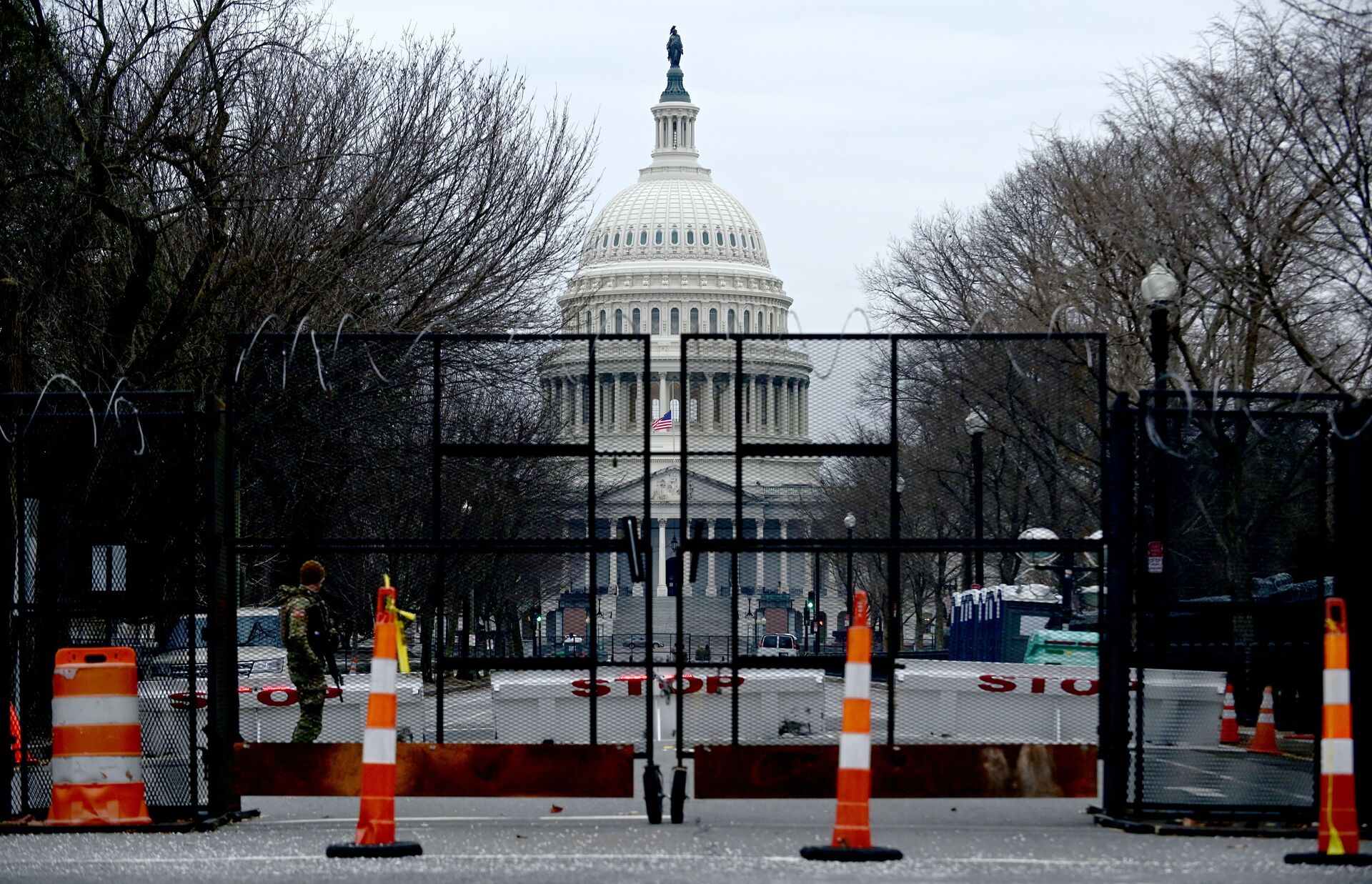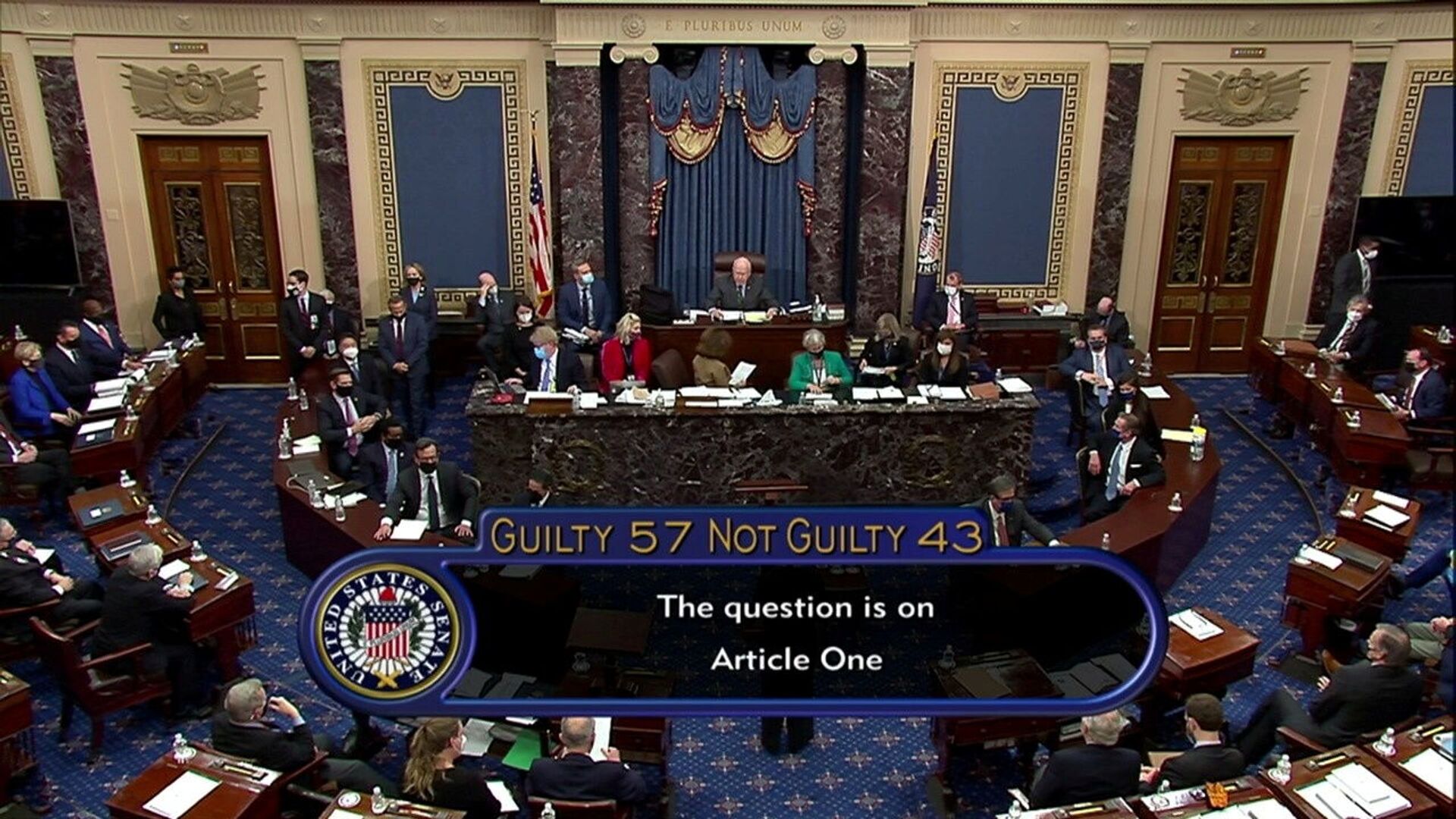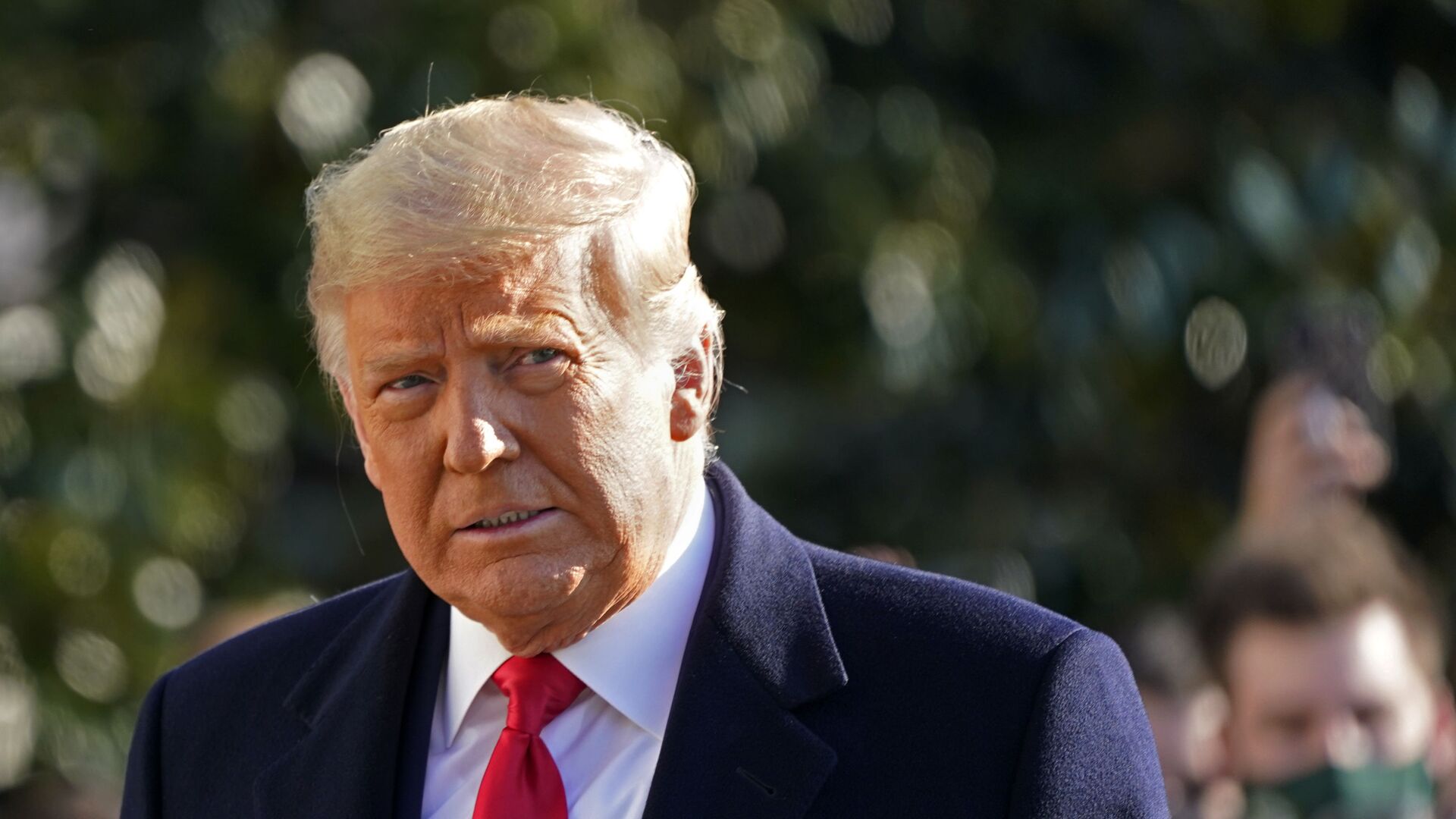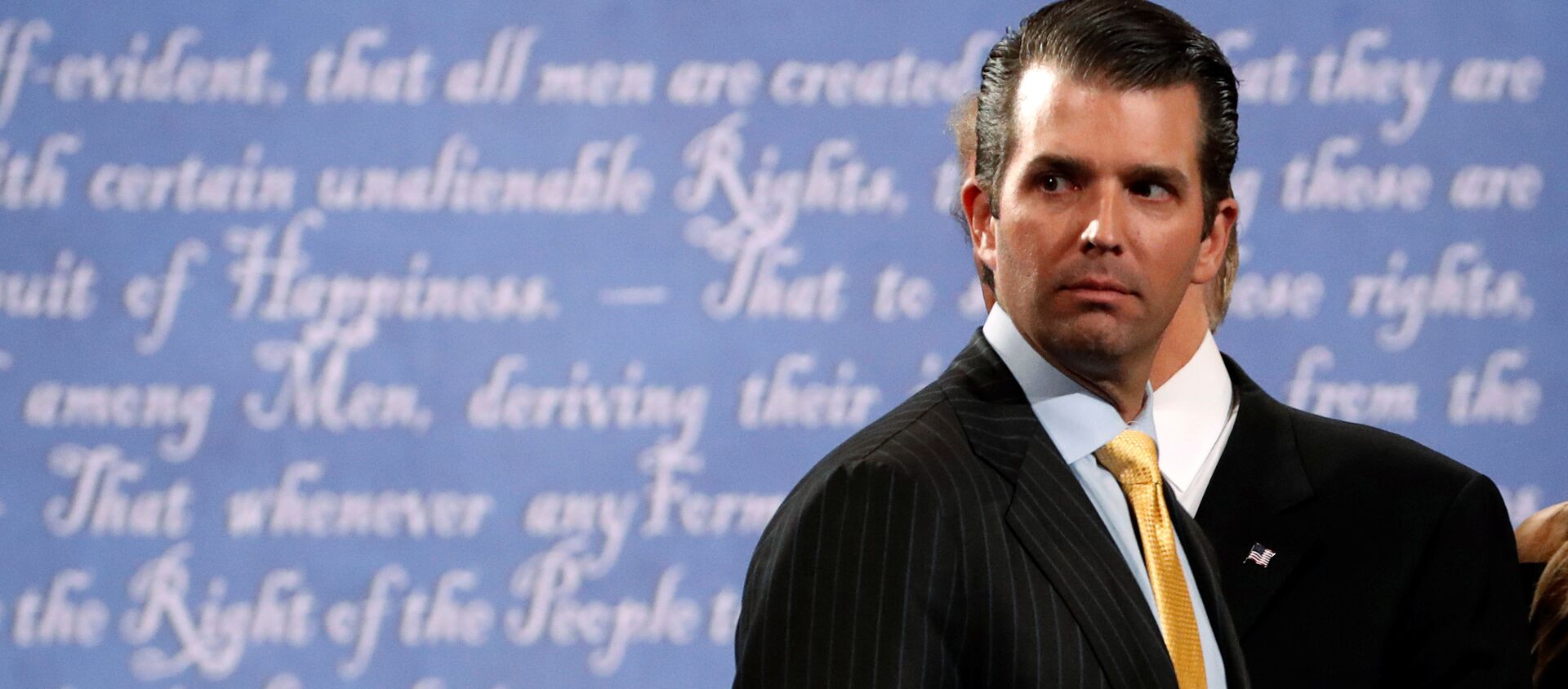Donald Trump has been acquitted in his second impeachment process, although seven Republicans joined the Democrats and voted to convict the former president. If another 10 Republicans had joined them, Trump would have been formally convicted and thus barred from running for public office again.
There was clear and “damning evidence” that the results of the vote were “hugely political”, since there was bipartisan support for the conviction, not only from “expected Republican senators”, says Dr Mark Shanahan, an associate professor at the University of Reading, expert in the US politics and co-editor of the book The Trump Presidency: From Campaign Trail to World Stage.

Shanahan notes that, as can be seen from the latest proceedings, Republicans put their party and their own personal political future first, with “the country’s morality and ethics” trailing “a long, long way behind”.
The present trend implies that the GOP is “hugely divided”: although on the one hand there are “old-style government-led conservatives” - people who believe in the system and hence its institutions - support for Trump in the country hasn’t waned either.
Trump's Stand-In Party
Quite a few questions arise as to whether Trump will retain any influence in the Republican orbit, especially in the run-up to the 2022 mid-terms.
A telling instance is that Mitch McConnell, one of the leading Republicans, who incidentally voted to acquit Trump, still attacked him, blaming the former president for the deadly 6 January attack on Capitol Hill, Shanahan believes.
“He doesn't want Donald Trump having any influence over the party for the 2022 mid-terms or absolutely not coming back for the 2024 presidential election,” Shanahan says, portraying the former property tycoon-turned-president as a less powerful figure than his colleagues. Trump advanced his policies "via Twitter", the expert notes, adding that he has now lost his platform after a number of tech giants banned Trump's accounts in the wake of the Capitol siege.
‘Days of Bipartisan Congress Working Jointly Over’
After Saturday’s vote, Senator Lindsey Graham said that “impeachment based on partisan differences seems to be becoming the norm, not the exception". As far as Shanahan sees it, Graham will “attach himself to wherever he sees the centre of power” and he is right.
“The days of the bipartisan Congress where people worked across the aisle to develop and implement good law have just gone,” the academic comments, saying both parties’ agenda has become more polarised - the Democrats have moved a bit to the left, whereas the Republicans have floated considerably to the right. This “has opened up a gulf where it is very hard for the two parties to operate together, and they are now just completely oppositional, which actually paralyses any good government happening,” the commentator reckons.
It appears there are quite a few indicators pointing to the polarisation in the society at large – for instance, vehement blowback against a number of Republicans who moved to convict Trump, and a Trump team lawyer reportedly receiving dozens of death threats and having his house vandalized for doing his job.
If a survey of all 330 million Americans is carried out, “you would still find that the large majority are around the centre in politics,” says Shanahan, admitting though that there is a very small radical wing on the left and “a somewhat larger and noisier radical wing on the right”.

Trump appeared to give up centrist policies and "the extreme radical wing of the party" is "noisy, [...] angry". "And what differentiates them from most countries is that they have guns,” the expert adds, stressing that angry people with poor judgement around the fringes of the political stage could "go beyond the bounds of what is normal and what is expected, and be violent.”
Trump’s Legal Woes
Despite the impeachment proceedings naturally casting into doubt one’s political aspirations, the question is still whether Donald Trump will be able to restore the trust of his fellow Republicans, now he has been cleared.
“Trump is probably going to spend the next four years defending lawsuits one way or another, whether civil suits around his finances," Shanahan speculates, or "criminal suits... about his time in office”. In the meantime, the GOP is in need of some different leadership, “some mature opposition that is based more around policy."
Some consider even Trump’s presence in the party as something “damaging”, agreeing with Shanahan’s take that he is himself a “divisive force within it”, as described by David Schultz, author and professor of political science and law at Hamline University, Minnesota.

“In many ways the House impeachment and Senate trial were both the first campaign act of the 2022 US mid-term elections, and a picture of where the Republican Party stands in a possible post-Trump world,” believes Schultz, saying Democrats impeached Trump “with no realistic chance he would be convicted.”
He says that fury over his calls to fight against the “rigged election” coupled with the failed Senate trial would prepare the ground for a campaign strategy in 2022.
Yet, Schultz agrees with Shanahan that the Republicans’ vote demonstrated not only how powerful Trump remains in the party’s circle, but how split it has become.



